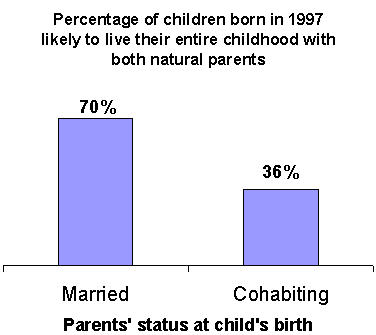
.





‘Knowledge is power’



World’s
encyclopedic
knowledge
compacted
in
your
hand





Please raise the vol to listen to the
lady airing awe @ the SINGLE author encyclopedia
Private Arrangement or Public
Commitment?
Free to choose?
Some people describe cohabitation as a
rebellion against traditional family forms,
striking a blow for freedom and
independence. While some people do
make a conscious choice to avoid
marriage, others simply 'drift into'
cohabitation. Many other people live
together because it seems the best
choice available at the time, even though
they see it as far from ideal.
Finances might influence people's
choices. For many people, especially
those in low-paid or irregular work,
getting married can seem too expensive.
The discrimination against marriage in
the tax and benefits system means that some people are better off by keeping their
relationships 'off the books'. Some people also fear that getting married is a high- risk gamble
because no-fault divorce laws make it easier for a spouse to walk away from their
commitment.
More than 'just a piece of paper'
Traditionally, marriage has had a special status in British law and society. Marriage developed
as a way to provide stability for families and for all of society. Marriage is a declaration of
commitment which has public as well as private consequences. It is an institution which offers
benefits not only to the couples themselves but to society as a whole. When people marry,
they commit themselves not only to being emotional and sexual partners, but also to taking
care of each other-for richer or for poorer, in sickness and in health. They promise to stick by
each other through the ups and downs that occur in everyone's lives. This promise and the
trust it builds encourage partners to make sacrifices for the good of the family. Traditionally,
British government and society have supported the institution of marriage by giving it certain
privileges and responsibilities, and by enforcing consequences for breaking marriage vows.
A decrease in the number of marriages and an increase in cohabitation both have come in the
wake of a large increase in divorce in the last thirty years. Some people argue that these
trends are due to people being less willing to make commitments, or perhaps being more
fearful that others will break their promises.
The role of the State
Although a good deal of evidence shows that cohabiting relationships have higher risks of
poor outcomes, governmental and other official bodies continue to treat cohabitation and
marriage as essentially the same. For example, the Lord Chancellor's department stated that
'the growing acceptance of long-term cohabitation as a preliminary or alternative to marriage'
means that 'many such relationships must be at least as stable as marriage'. 21 Meanwhile,
the Home Secretary Jack Straw takes the view that we 'shouldn't get in a paddy about the
decline of formal marriage' and that 'the most important thing is the quality of the relationship,
not the institution in itself'. 22
Some people argue that marriage should not receive any special recognition from the state.
They claim that cohabitants should have the same legal rights and responsibilities which used
to be reserved for marriage, from property rights to the right to take decisions about children's
lives.
Currently, when a married couple divorces, a court decides how to divide their property, based
upon the needs of both spouses and any children they have. However, when a cohabiting
couple break up, each person retains ownership of their own property. This system ensures
that individuals who commit themselves to the institution of marriage have some legal
protection. It also protects the freedom of those who choose to live with each other outside the
bounds of marriage.
The Solicitors Family Law Association and some other groups have called for extending the
same marriage rights to cohabiting couples upon their break up. 23 However, this action would
deprive people of their right to live together on their own terms. Furthermore, it would blur the
already fuzzy distinction between cohabitation and marriage. Undermining the special status
of marriage would weaken an option for people who want to make both a private and a public
commitment.
Although a marriage always requires two people, a divorce sometimes requires just one
person, leaving the other in the cold. The state could help strengthen the institution of
marriage by ending 'no-fault', non-consensual or unilateral divorce, and by introducing divorce
settlements which penalise, rather than favour, the spouse who leaves or behaves badly.

You may also like:
Why Men Are In Trouble: Gender Competition Sees Men Below
Egg white may help lower blood pressure
Vegetarians Live Longer Than Meat-Eaters, Study Finds
Muslim-majority Indonesia gifts goddess Saraswati statue to US
Empowering Book Newsletter






WOMEN’S POWER: ITS PAST, ITS PRESENT, ITS FUTURE: FEMOCRACY
WEB PAGES
OUR OFFERING
UPLOADED ITEMS
OUR EMAIL
kri200@womenspowerbook.org
QUESTION




















